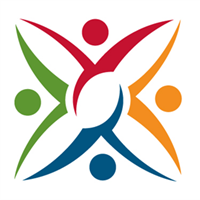- GMHC
-
Getting Started
-
Wondering where to start?
-
 We're your guide. What can this community do for you? Learn more
We're your guide. What can this community do for you? Learn more
-
-
Mobilization
-
Heed the call!
-
 Community Challenges Activate your journey to the field! Read Article
Community Challenges Activate your journey to the field! Read Article -
 Search Jobs Community Job Board Read Article
Search Jobs Community Job Board Read Article
-
-
Resources
-
Learn & Connect
-
 Upcoming Events Learn from the experts in healthcare missions & connect with others. Register Now
Upcoming Events Learn from the experts in healthcare missions & connect with others. Register Now
-
-
Community
-
Connect With the Community
-
 Member Lounge We're all in this together! Join the conversation.
Member Lounge We're all in this together! Join the conversation.
-
- Store
- Log In

GMHC 2019
Spiritual Interventions in Patient CareSpiritual Interventions in Patient Care
- Resource Library Spiritual Interventions in Patient Care
- Share
- Share
About 25 years ago, while sharing an early morning cup of coffee with my dear friend and practice partner, family physician John Hartman, MD, he asked, “Walt, how come we don’t bring our faith to work with us more often?” It was a question the Lord used to convict me of the fact that although my personal relationship with God was the primary and most important relationship in my life, more often than not I tended to leave Him at the door when entering the hospital or medical office. The question was the catalyst for this talk: Spiritual Interventions in Patient Care.
Research findings, a desire to provide high-quality care, and simple common sense, all underscore the need to integrate spirituality into patient care. It is highly ethical for healthcare professionals and healthcare systems to assess their patients’ spiritual health and needs and to provide indicated and desired spiritual interventions. Clinicians and health care systems should not deprive their patients of the spiritual support and comfort on which their hope, health, wellbeing, and longevity may hinge.
Before you get started, I must share this caution from Stephen Post, PhD: “Professional problems can occur when well-meaning healthcare professionals ‘faith-push’ a patient opposed to discussing religion.” However, on the other side of the coin, “rather than ignoring faith completely with all patients, most of whom want to discuss it, we can explore which of our patients are interested and who are not.” Simply put, a spiritual assessment can help us do this with each patient we see. We can potentially gain the following from a spiritual assessment:
- The patient’s religious background,
- The role that religious or spiritual beliefs or practices play in coping with illness (or causing distress),
- Beliefs that may influence or conflict with decisions about medical care,
- The patient’s level of participation in a spiritual community and whether the community is supportive, and
- Any spiritual needs that might be present.
Several fairly-easy-to-use mnemonics have been designed to help health professionals, such as the “GOD” spiritual assessment I developed for CMDA’s Saline Solution:
G = God: − May I ask your faith background? Do you have a spiritual or faith preference? Is God, spirituality, religion or spiritual faith important to you now, or has it been in the past?
O = Others: − Do you now meet with others in religious or spiritual community, or have you in the past? If so, how often? How do you integrate with your faith community?
D = Do: − What can I do to assist you in incorporating your spiritual or religious faith into your medical care? Or, is there anything I can do to encourage your faith? May I pray with or for you?
However, this and other spiritual assessment tools fail to inquire about a critical item involving spiritual health: any religious struggles the patient may be having. A robust literature shows religious struggles can predict mortality, as there is an inverse association between faith and morbidity and mortality of various types.
Sir William Osler, one of the founding professors of Johns Hopkins Hospital and frequently described as the “Father of Modern Medicine,” wrote, “Nothing in life is more wonderful than faith…the one great moving force which we can neither weigh in the balance nor test in the crucibIe - mysterious, indefinable, known only by its effects, faith pours out an unfailing stream of energy while abating neither jot nor tittle of its potence.” You can experience that driving force of faith when you apply these principles of spiritual assessment in your practice of healthcare, thereby allowing you to minister to your patients in ways you never imagined possible, while also increasing personal and professional satisfaction. One doctor recently shared with me, “Ministering in my practice has allowed God to bear fruit in and through me in new and wonderful ways. I can’t wait to see what He’s going to do in and through me each day. My practice and I have been transformed.”
Community tags
This content has 0 tags that match your profile.
Healthcare Specialties Show all (68)
Global Health Interest Areas Show all (37)
Areas of the World Show all (206)
Ways to Engage
Student Opportunities




Comments
Ernest Owusu Mensah